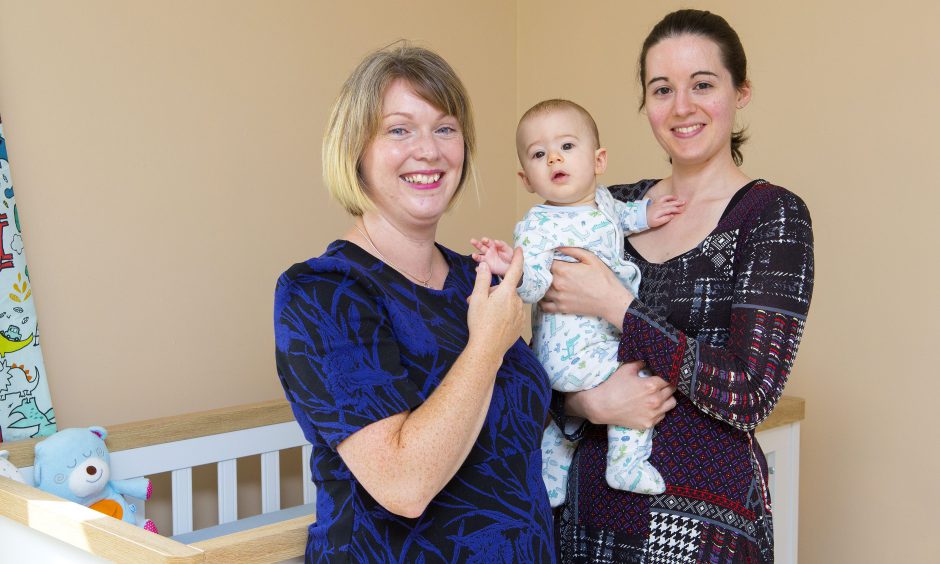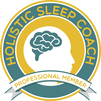|
I feel that it matters we explore the difference between Sleep Training and Sleep Consultancy (as defined me, Nadia Edwards, Baby & Toddler Sleep Coach in Scotland, Fife). Why? well for one, most people think they are the same thing and that all professionals who support families to achieve better sleep use sleep training techniques. This isn’t always the case, or is depending what you class as ‘training’ for example some argue that rocking a baby to sleep is sleep training, training baby to fall asleep in a particular way. While sleep training techniques may be suggested by a professional, it isn’t often the methods that most think of such as Cry-It-Out or Controlled Crying or similar variations of these while you leave your baby alone to cry to sleep.
A Sleep Consultant may suggest a gentle, age and developmentally appropriate form of sleep training, but it is often only one tool in the overall package of care and support and on its own wouldn’t result is much sleep success long term. So I want to explore in more detail what exactly is Sleep Training? How is that different from Sleep Consultancy, do you need to have any professional licences or qualifications to become one and what to expect when you work with one What is Sleep Training? There were 60,000,000 Results when I googled ‘Definition of Sleep Training’ The most commonly understood definition appears to be: the process of training young children to fall asleep on their own, typically by means of techniques in which the child is left to cry without being comforted, either for gradually increasing periods of time or until they fall asleep. What I define as Sleep Training (and what most, if not all of the debate about Sleep Training is linked to - I listed the top 3)
There are various other techniques, such as sleep shaping, floor beds, bedtime rituals, soothing ladder, safe bed-sharing, seated settling (when your baby falls asleep sitting up with your help and then are lowered down into lying position) and multi-sensory strategies, and a whole range of others for toddlers and older children, mostly people do not associate these various other techniques with sleep training, but it is fair to say they are part of a good sleep coaches toolbox What is a Sleep Consultancy? Sleep consultancy involves much more than one of the above sleep training techniques - if any, it involves an in depth evaluation to unpick exactly what is going on, and identify links that maybe making it harder for families and babies to sleep well, a collaborative approach with parents and caregivers to make a plan of action (if needed), Sleep coaches talk through all the information about what is normal infant sleep and ways to improve the whole family’s sleep. Sleep consultancy involves looking at environmental cue’s, sensory diet, developmental leaps, nutrition, feeding and many other factors depending on the type of training the coach has completed, things such as allergies, tongue tie, attachment, trauma, anxiety and the list can go on….. What qualifications do you need to become a Sleep Consultant? You don’t actually need any, I know consultants who have done a one day training session and set themselves up (this is so wrong), while others have done degree level programmes and taken months of mentorship such as a certification program, the first program I studied took months, 3 months for initial certification and a further 12 months of mentorship and at the moment certifications are the ‘gold’ standard but more can be done to improve the training nationally, which is why I am so excited about the new accredited programme being delivered with OCN London – the problem is, as yet, there is no system for accreditation or regulation of sleep coaches in the UK, and no national training standards, but like I said that is changing with a new Holistic Sleep Coaching Programme https://www.holisticsleepcoaching.com/ which I am one of the first in the UK to be part of, it is gentle, responsive and evidnece-based. For a detailed look at my credentials click here. In summary sleep training maybe one method in the tool box of a sleep consultant, not all sleep consultants are equal but the majority of sleep consultants who have undergone a certification program will have completed months of training and mentorship, not all sleep training methods are Cry-It-Out or Controlled Crying and improving sleep is complex, in that it should involve the whole family and look beyond sleep being the ‘problem’ Comments are closed.
|
Categories
All
|
Site Links |
Copyright © - Nadia Edwards 2024, 3 Northbank Road, Cairneyhill, Dunfermline, Fife, KY128RN | Sitemap




